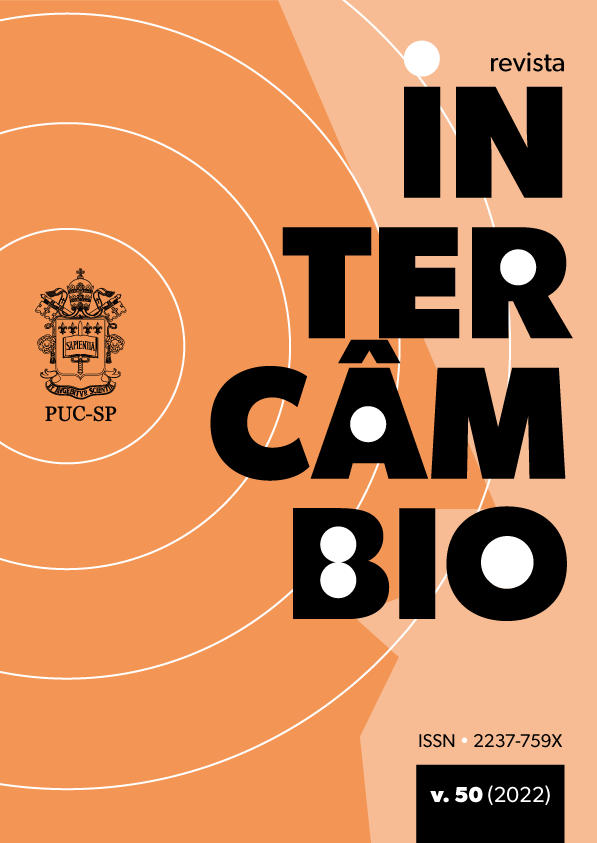How can Psychoanalysis explain “post-truth” based on the notion of Apophenia by Klaus Conrad
Keywords:
psychoanalysis, psychiatry, language, social communication, post-truthAbstract
This article intends to explain how psychoanalysis can understand the psychic mechanisms that lead a subject to accept absurd ideas, disseminated in the context of post-truth. Therefore, we will use the notion of apopheny: one of the phases of the process of triggering schizophrenia, proposed and described in 1958 by the German psychiatrist Klaus Conrad. We believe that apopheny can collaborate, as a material for theoretical elaboration, with psychoanalysis, as it presents, in its nosography, characteristics similar to those observed in subjects who easily adhere to false information. We also defend that the media rely on the studies of psychological phenomena, such as apopheny, to be instrumental in the construction of persuasive languages, with political ends, nurturing what we call “post-truth”.
References
AB’SABER. T. “Ilusão, convicção e mentira – Linguagem e psicopolítica da pós-verdade”. In: Discurso e (pós) verdade. Org. Luzmara Curcino, Vanice Sargentini, Carlos Piovezani. 1 ed. São Paulo: Parábola Editorial, 2021.
BEER, P. A questão da verdade na producã̧o de conhecimento sobre sofrimento psíquico: consideraçõ̧es a partir de Ian Hacking e Jacques Tese (Doutorado em Psicologia Social) – Orientador: Nelson da Silva Junior. USP, 2020.
BEER, P. “From negation to negationism: the COVID-19 pandemic in Brazil”. Journal of Psychosocial Studies, v 14, n 3, Oct, 2021, pp. 187-201(15). Disponível em: https://doi.org/10.1332/147867321X16285243650694. Acesso em: 18 nov, 2021.
BRASIL. Lei nº 12.965, de 23 de abril de 2014. Atos do Poder Legislativo. Diário Oficial da União: seção 1, Brasília, DF, 23 abr. 2014.
CALDAS, H.; MIRANDA, L. “Considerações psicanalíticas sobre a pós-verdade e as maditas fake news”. In: Reista. Latinoamericana de Psicopatologia Fundamental, São Paulo, v. 24, n.3, p. 560-574, set. 2021.
CONRAD, K. La esquizofrenia incipiente: intento de un análisis de la forma del delírio. Madrid: Alhambra, 1963.
DIAS, M. M. Discurso da estupidez. São Paulo: editora Iluminuras, 2020.
DUNKER, C. “Subjetividade em época de pós-verdade”. In: Ética e pós-verdade. Porto Alegre: Ed. Dublinense, 2017.
FREUD, S. “Neurose e psicose” (1924). In: S. Freud Obras Completas. Vol. 16. Tradução Paulo César de Souza. São Paulo: Companhia das Letras, 2011a.
FREUD, S. “A perda da realidade na neurose e psicose” (1924). In: S. Freud Obras Completas. Vol. 16. Tradução Paulo César de Souza. São Paulo: Companhia das Letras, 2011b.
FYFE, S. “Apophenia, theory of mind and schizotypy: perceiving meaning and intentionality in randomness” (2008) University College of London. Acesso em 24/03/2022. Disponível em: < https://citeseerx.ist.psu.edu/viewdoc/download?doi=10.1.1.624.9235&rep=rep1&type=pdf> Acesso em 24/03/2022.
IANINI, G. Estilo e verdade em Jacques Lacan. 2. Ed. Belo Horizonte: Ed. Autêntica, 2013.
KREITNER, R. “Post-Thruth and its consequences: what a 25-year-old essay tells us about the current moment”. The Nation. 30 de novembro de 2016. Disponível em:
https://www.thenation.com/article/archive/post-truth-and-itsconsequences-what-a-25-year-old-essay-tells-us-about-the-currentmoment/. Acesso em: 19 nov. 2021.
LACAN, J. “Função e campo da fala e da linguagem na psicanálise” (1953). In: Escritos. Rio de Janeiro: Zahar, [1966] 1998.
LACAN, J. “A coisa freudiana ou o sentido do retorno a Freud em psicanálise” (1956). In: Escritos. Rio de Janeiro: Zahar, [1966] 1998.
LACAN, J. Seminário, livro 4: A relação de objeto (1956 -1957). Rio de Janeiro: Zahar, 1997.
LACAN, J. Seminário, livro 10: A angústia (1962 -1963). Rio de Janeiro: Zahar, 2005.
LACAN, J. Seminário, livro 17: O avesso da psicanálise (1969 -1970). Rio de Janeiro: Zahar, 2008.
LAURENT, E. “A sociedade do sintoma”. In: A Sociedade do Sintoma – a psicanálise hoje. Rio de Janeiro: Contra Capa Livraria, 2007.
Oxford Dictionaries. Word of the year 2016 is…. Oxford, 2016. Disponível em: <https://languages.oup.com/word-of-theyear/2016/>. Acesso em: 18 nov 2021.
ROSA, M. D. “A pesquisa psicanalítica dos fenômenos sociais e políticos: metodologia e fundamentação teórica” IN: Rev. Mal-Estar Subj. v.4 n.2 Fortaleza set. 2004.
SAFATLE, V. “É racional parar de argumentar”. In: Ética e pós-verdade. Porto Alegre: Ed. Dublinense, 2017.
SANTOS. T. C. “Desmentido ou inexistência do Outro: a era da pós-verdade”. In: Revista aSEPHallus de Orientação Lacaniana. Rio de Janeiro, v. 11, n. 22, p. 4-19, Mai/Out, 2016.
TEIXEIRA, A. “Entre o signo e o significante: A esquizofrenia incipiente segundo Conrad” In: Revista do Departamento de Psicologia - UFF, v. 18, n. 1, p. 107-116, Jan/Jun, 2006.
Downloads
Published
How to Cite
Issue
Section
License
Copyright (c) 2022 Vivian Valerie Carol Ann Vigar

This work is licensed under a Creative Commons Attribution 4.0 International License.






